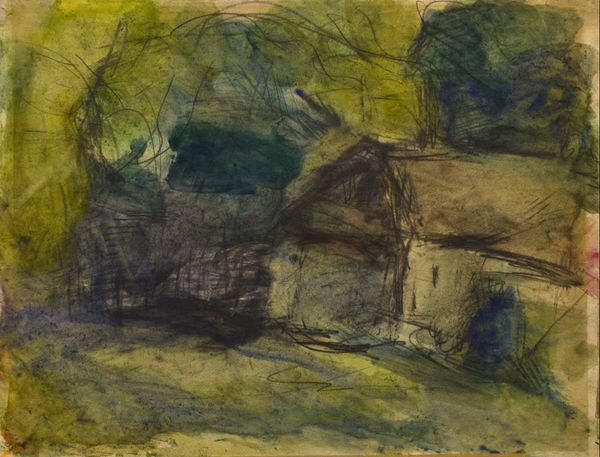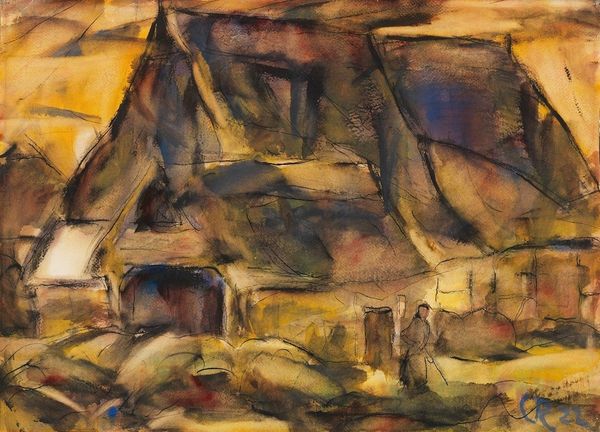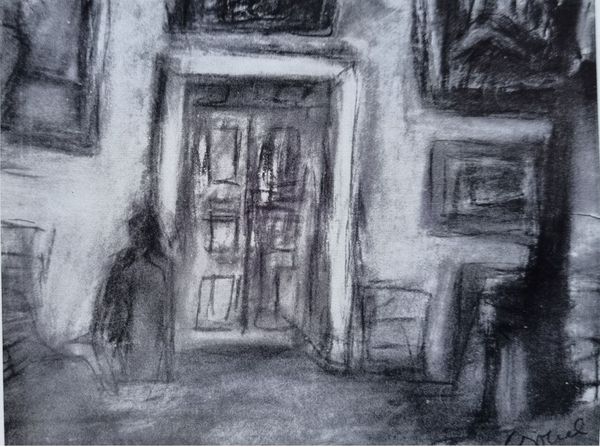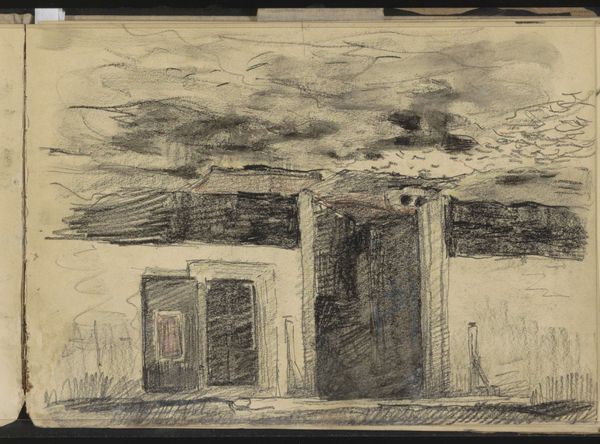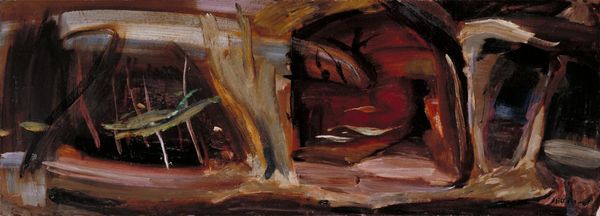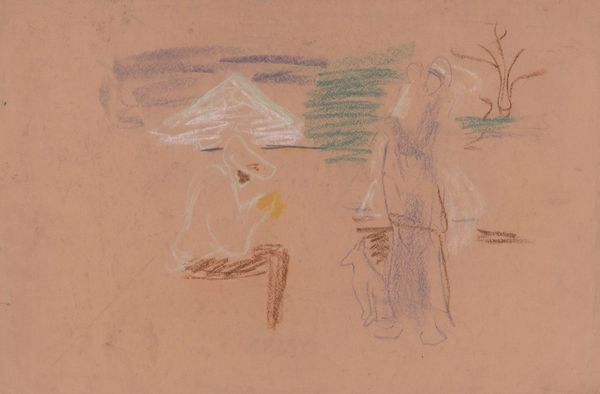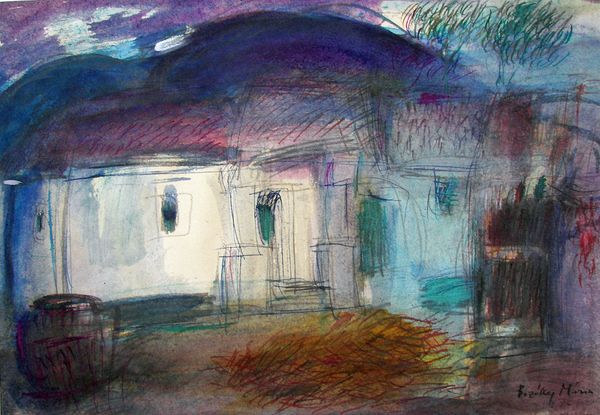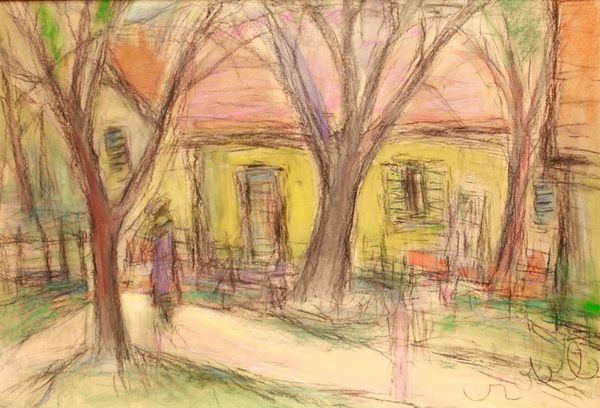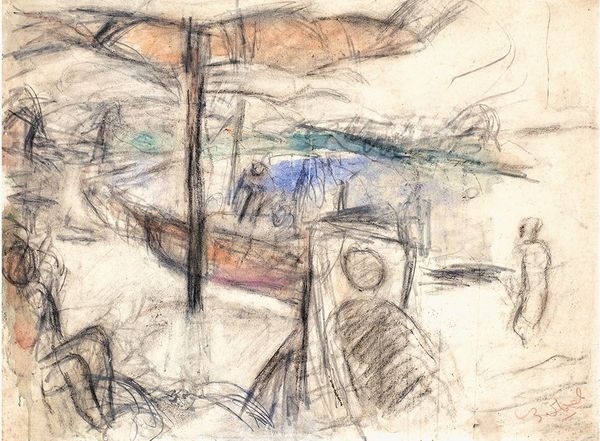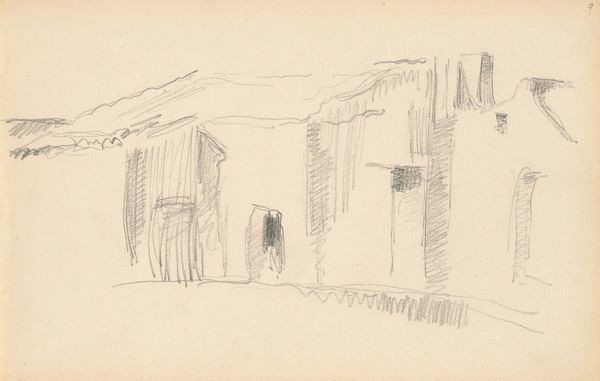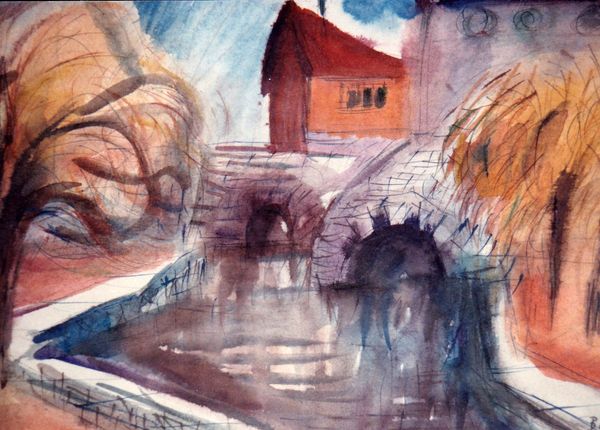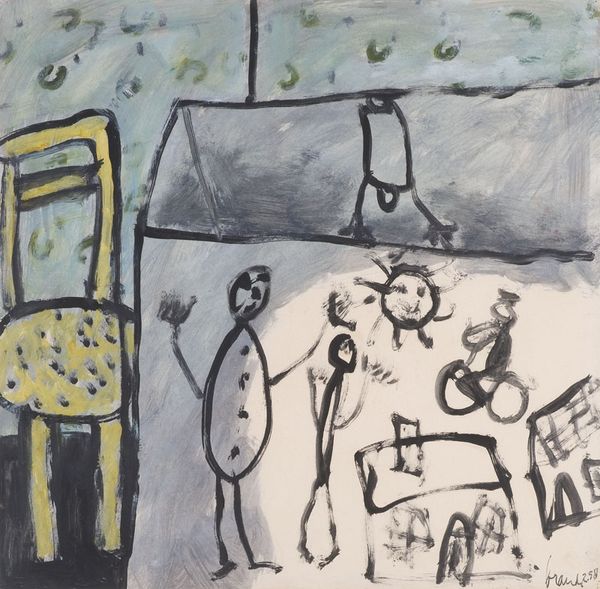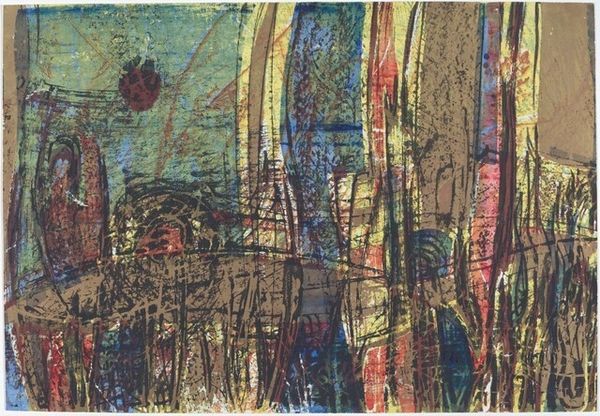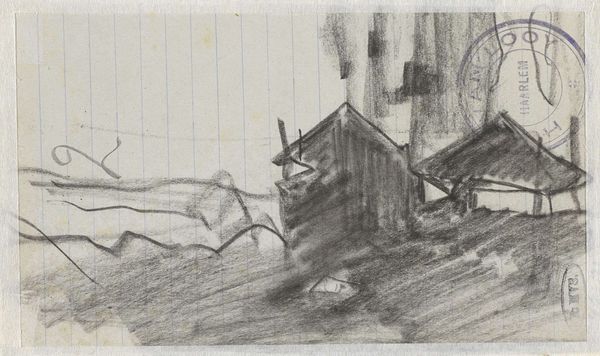
drawing, pastel
#
drawing
#
abstract painting
#
landscape
#
impressionist landscape
#
oil painting
#
expressionism
#
abstraction
#
cityscape
#
pastel
Copyright: Bela Czobel,Fair Use
Curator: Let’s turn our attention to "Czóbel Béla Szentendrei Udvar." Created by Bela Czóbel, this piece evokes a sense of place using what appears to be pastel and drawing techniques. Editor: My first impression is that it's remarkably moody for a cityscape. The color palette is subdued, and the composition has a slightly haunted, dreamlike quality. It almost feels as if we’re glimpsing into a memory. Curator: Szentendre, a town near Budapest, was a haven for artists in the early 20th century. Czóbel's own journey, marked by experimentation with Fauvism and Expressionism, infuses this image with layers of identity. How does the context of artistic freedom influence our reading of it? Does this invite queer interpretations? Editor: The blurred edges and muted tones create an atmosphere of secrecy. The darkened doorway, like a shadowed mouth, could symbolize an entrance to the subconscious, perhaps mirroring the psychological weight of expressionism as a movement. The symbolic language here is powerful. It is as if we’re invited to acknowledge unspoken tensions. Curator: Czóbel, having been influenced by various artistic movements, allows for this piece to reflect a break from tradition and academic styles, which has profound significance for queer audiences searching for representations of marginalized experiences. This search becomes the foundation to construct identities by reclaiming this hidden or excluded art. Editor: The lack of vibrant color directs our focus instead to the texture, the way the pastels create a sort of haptic experience. Those short, almost nervous strokes, might signify that transition and liminality, those periods where one reclaims and reshapes identity to find truth within one’s self and surroundings. Curator: Exactly. This exploration reflects broader societal anxieties regarding identity and belonging during his time, and that sense still persists with our viewers today. Editor: Looking at Czóbel's landscape, I find myself contemplating not just what's visibly depicted, but also the complex interplay of memory, identity, and place it represents. Curator: Absolutely, it’s a fascinating exploration of art, context, and the unspoken dialogues between them.
Comments
No comments
Be the first to comment and join the conversation on the ultimate creative platform.
